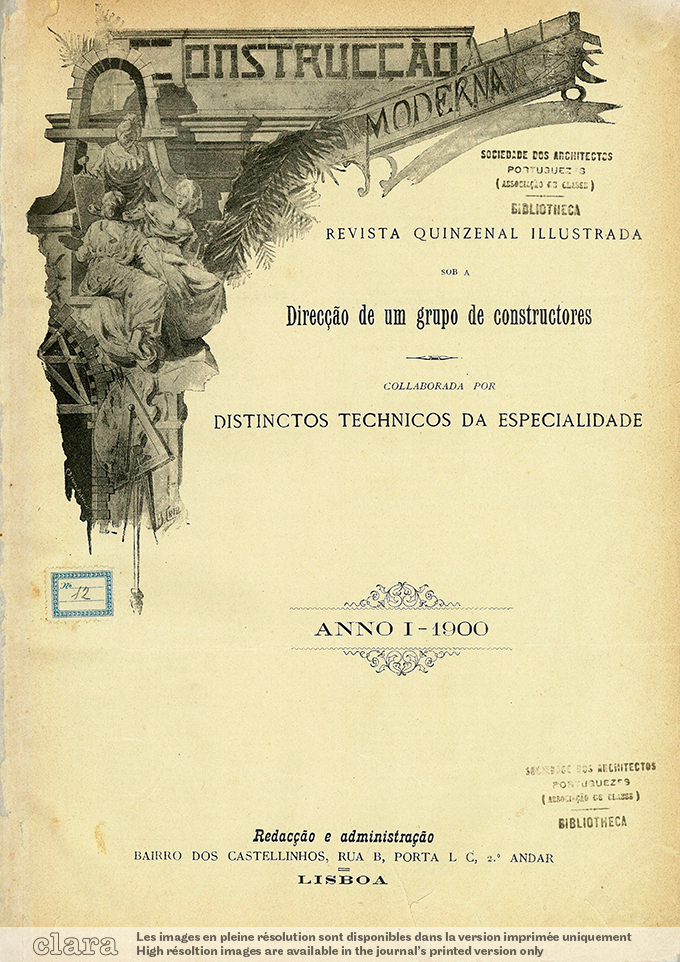Overlapping Boundaries: Knowledge and Opinion in Architectural Criticism at the Dawn of the Portuguese Twentieth Century
Main Article Content
Abstract
This article examines the main conditions that provided the foundation of architectural criticism in Portugal, at the dawn of the twentieth century. The juncture formed by the first architecture magazines A Construcção Moderna (1900–1919) and A Architectura Portugueza (1908–1930) is here taken as the key circumstance that permitted the rise of a mutually dependent condition between the architect’s new professional status in the bourgeois society and the identification of architectural criticism as a specific practice. By analyzing these magazines as two overlapped ways of accessing and communicating architecture, this article argues that the construction of architecture’s critical discourse in Portugal went far beyond disciplinary knowledge and that non-specialized opinion should also be considered in such a construction. Together, knowledge and opinion provide the frame for a reflection on the dynamic ways whereby the distinct perspectives of the intellectual and political projects resulted in continual renegotiations of the architecture frontiers and trajectory.
Article Details

This work is licensed under a Creative Commons Attribution-NonCommercial-NoDerivatives 4.0 International License.

